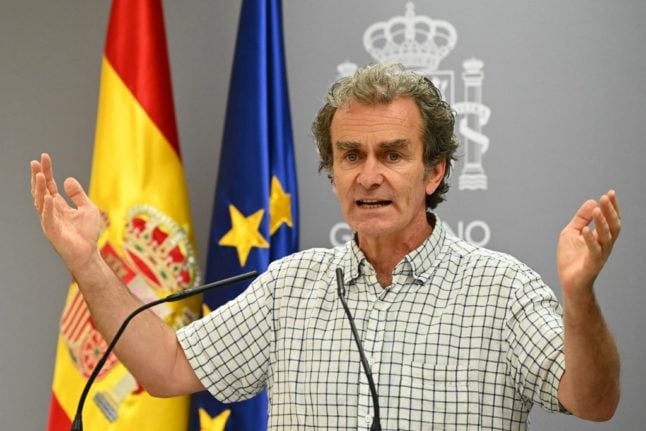Simón, who has been the Spanish Health Ministry’s primary spokesperson during the pandemic, was asked: “How would you explain to Spaniards that foreigners can come to their second homes in Spain and they can come on holiday but Spaniards cannot go to their second homes?”
“Sometimes there are incongruence that aren’t easy to explain. I at least find it hard to explain,” he replied.
Currently there are regional, provincial and even municipal border closures in different parts of Spain that make travel for Spanish nationals and foreign residents hard without justified reasons.
Spain’s 17 autonomous communities also reached a preliminary agreement to close their borders during the Easter holidays at the start of April.
But travel to Spain from many countries is still allowed (mainly from EU), with PCR tests required from lower risk countries and a travel ban for travellers from the UK, Brazil, South Africa and a handful of other African nations.
“It’s not the same if an English person comes than if 20,000 people move from one city to another,” he justified, citing that arrivals from overseas are “subject to important restrictions” and international tourism is opening up “slowly”.
READ ALSO:
- How is Spain’s Covid-19 vaccine campaign going?
- MARCH UPDATE: What are the latest rules on travelling to Spain?
- ANALYSIS: Does Spain really want to welcome back tourists soon?
“It’s not as if any foreigner can come to Spain right now,” Simón concluded.
“Foreigners who are residents in Spain can come, as can Spanish nationals working abroad if they’re residents here.
Spanish authorities are hoping their vaccine campaign will be 70 percent complete by the summer in order to be able to guarantee herd immunity and open up to tourists again.
On Tuesday, this benchmark figure to kickstart Spain’s ailing tourism industry was revised down to 30-40 percent immunity.
READ MORE:
Spring break: how Spain plans to welcome back tourists before summer
Spain lost an estimated €72 billion in tourism revenue during 2020 and saw a drop in 65 million tourists. Another summer without foreign visitors will be devastating for the country’s economy.
Tourism was Spain’s most important sector accounting for almost 15 percent of the country’s GDP and providing 2.8 million people with work before the Covid-19 outbreak.



 Please whitelist us to continue reading.
Please whitelist us to continue reading.
Member comments